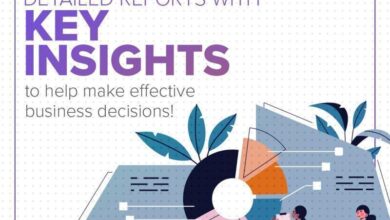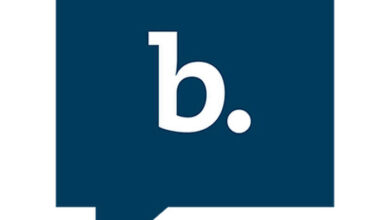The Forrester Wave: Conversational AI For Customer Service 2024 – Top Takeaways

Are generative AI (GenAI) and LLMs the solution to years of customer self-service disappointment? Forrester certainly believes so.
With the report claiming that “GenAI will save the beleaguered chatbot,” Forrester argues that the technology’s inherently natural conversations and significantly reduced deployment times are a self-service game-changer.
And conversational AI vendors appear to agree.
With the proliferation of GenAI in recent times, these vendors have had to “completely reinvent” their solutions to maximize the new tech’s potential.
But which organizations managed it best? And which haven’t quite mastered it just yet?
Without further ado, here is a list of how each vendor performed, alongside some key takeaways from Forrester’s report:
Kore.ai (Leader)
Kore.ai’s use of LLMs and GenAI separates it from the rest of the pack, with the company’s XO platform and new GALE AI application framework crucial to the speedy and intelligent integration of conversational AI solutions.
The organization has also committed to investing heavily in its roadmap, as it aims to improve LLM orchestration and develop future-focused innovations such as autonomous agents.
Forrester praised Kore.ai’s adoption of modern AI tools, describing the tech provider as “a good fit” for organizations looking to implement AI capabilities throughout the contact center.
Cognigy (Leader)
The standout feature of the Cognigy.AI platform is its flexibility, which Forrester believes contributes to “truly differentiating self-service,” and allows the solution to be deployed on-premises, private cloud, or SaaS.
In addition, the platform leverages session information, user input, and context to determine how LLMs and GenAI systems are utilized, as part of Cognigy’s vision of producing humanlike, trainable agents.
The company’s track record of securing significant sales through partners also impressed Forrester, who believes it allows Cognigy to “punch over its weight” in the market.
OneReach.ai (Leader)
Forrester outlined the sophistication of the design of OneReach.ai’s Generative Studio X (GSX) platform – detailing how it allowed the company to provide “standout self-service applications.”
Within the platform, the organization’s Intelligent Digital Workers (IDW) drew praise for their ability to do “real work” for customers via LLM and GenAI adoption.
Arguably, the company’s most impressive feat is the usability of its platform. Not only does it stay true to its no-code boast – with 80% of users having no coding experience – but it also provides mentorship within its support and deployment teams.
Amelia (Leader)
The final ‘leader’ listed in the report is Amelia’s conversational AI platform, whose “aggressive” adoption of AI innovations and roadmap strategy impressed Forrester.
The platform utilizes LLMs and GenAI to deliver tools that can identify, manage, and sync with course documents – improving summarization and knowledge access capabilities.
The company also has an enviable selection of partnerships with major contact center providers, such as NICE. Accrdoing to Forrester, this experience of working with large brands makes Amelia a strong option for organizations seeking a partner with a history of providing “white-glove services.”
Sprinklr (Strong Performer)
Sprinklr’s conversational AI platform benefits from the company’s roots in marketing and social media, with Forrester highlighting the organization’s business value realization deployment and comprehensive no-code development strategy as examples of this “innovative” approach.
However, the sheer number of innovations that the platform contains can overwhelm some users, who have described the tool as “complex” and difficult to understand.
Aisera (Strong Performer)
Having almost doubled its customer base in 2023, Aisera’s AI Customer Service solution is a growing platform that makes use of a considered, step-by-step deployment approach that allows it to routinely identify and deliver on specific customer ROIs.
The report also praised Aisera’s TRAPS (trusted, responsible, auditable, private, and secure) framework, which safeguards data confidentiality and user privacy while also minimizing hallucinations.
With the platform still in its infancy, limitations can be expected, with Forrester believing that the company’s tools for generating alerts for system administrators “fall short” of the required standard.
Avaamo (Strong Performer)
With a focus on providing services for large enterprises, Forrester highlights the ability of Avaamo’s platform to deliver “personalized interactions” in voice and digital channels.
The platform achieves this through the integration of a number of solutions that include an enhanced LLaMB framework, additional CCaaS integrations, and prebuilt application components.
Despite these features, Avaamo’s platform struggles with its reporting and administrative functions, with customers describing the tools as “limited”.
Netomi (Strong Performer)
The Netomi AI platform has a reputation for providing a high level of customer care, as evidenced by the company’s impressive retention rates.
Forrester praised the organization’s “strong vision” for GenAI – outlining its deployment of prebuilt integrations, accelerated GenAI assistants, and enhanced languages and systems support.
While being a smaller company may help with keeping hold of Netomi’s existing customers, its limited R&D budget could prevent it from keeping pace with an evolving market.
Omilia (Strong Performer)
The Omilia Cloud Platform was praised by customers for providing “unparalleled” and “unwavering” support.
The company’s biggest asset is its voice capabilities, where its cutting-edge speech technology and robust telephony connectivity help deliver “standout” voice self-service solutions.
Similarly to Netomi, Omilia also suffers from a small R&D budget. In addition, the report found “holes” in the company’s LLM and GenAI support, with RAG synthesis and summarization currently only available in beta.
LivePerson (Strong Performer)
With almost 30 years of experience in the sector, LivePerson’s Conversation Cloud continues to be a customer self-service powerhouse.
With an impressive market presence, the platform provides users with a “unique” and “broad” array of products, as well as delivering a differentiated CX through both self-service and assisted service options.
The platform’s biggest issue stems from the fact that it is currently transitioning to LLMs and GenAI, resulting in predictable shortcomings and lag in those areas.
Yellow.ai (Contender)
The company’s GenAI-powered Dynamic Automation Platform (DAP) is a hit with customers, who “raved” about its responsiveness. The tool offers users GenAI prompt-building assistance, as well as enhanced AI-driven FAQ capabilities.
With an ambitious roadmap that includes the implementation of a CRM, an AI-powered core CCaaS product, and conversation analytics, Yellow.ai may be an example of having eyes too big for its stomach – with Forrester predicting that the company’s lack of resources will result in “shallow” products.
Verint (Contender)
Verint’s conversational AI offerings are included within its Customer Engagement Platform as part of a comprehensive suite of contact center and customer service solutions. This is combined with the company’s Da Vinci solution, which leverages AI to boost analytics, assist agents, and improve the overall customer service and experience.
While this resource consolidation creates synergies for the company and its customers, it compromises Verint’s flexibility and delays the delivery of conversational AI functionality.
Ada (Contender)
Arguably, the most unique offering in the Forrester report comes from Ada, with its platform eschewing traditional NLU approaches, and instead, choosing to utilize fine-tuned LLMs from Anthropic, Microsoft, and OpenAI.
By adopting this strategy, Ada is able to streamline conversational AI adoption for its users. According to Forrester, the approach allows LLMs to be fully integrated into the Ada platform, enhancing its reporting and development tools and simplifying development and administration.
With such an aggressive and innovative stance, it is unsurprising that Ada lacks a degree of sophistication, with some users complaining that simple tasks are more complex than necessary.
eGain (Challenger)
The only ‘challenger’ listed in the report comes in the form of eGain’s Virtual Assistant.
Forrester acknowledges eGain’s pedigree within the sector – complimenting its track record of creating conversational AI solutions, building strong partnerships, and producing high customer retention rates.
However, the company has switched focus in recent times, with conversational AI taking a backseat to knowledge management. And while there are overlaps between the two areas, the change of attention has resulted in a drop off in eGain’s conversational AI offerings.
What Should Buyers Look for in a Conversational AI for Customer Service Vendor?
While every individual organization will have certain tools and strategies that are unique to their platform, Forrester outlined the following three key areas that anyone looking to invest in a conversational AI provider should consider:
Orchestrate AI Systems, CRMs, and Communications
Conversational AI systems are evolving to execute tasks while maintaining customer context, ensuring personalized interactions.
Your solution should connect to multiple LLMs and generative AI systems for conversation, access documents and databases for answers, and integrate with CRMs and other backend systems for transactions.
In addition, the platform should also offer speech technologies that support multiple communication channels.
Provide the Tools Needed to Build Quality Self-Service Applications
With AI system lacking out-of-the-box functions, organizations must provide high-quality GenAI and LLM prompt building tools.
While no/low-code approaches have long been standard for developing self-service applications, the report details how the leading vendors enhance these tools to boost efficiency for both coders and non-coders.
They achieve this by providing collaborative tools and prebuilt modules that developers can use for common tasks like processing payments or changing passwords.
Deliver a Modern, Reliable, Safe, and Manageable Platform
Vendors in this report typically use microservices and Kubernetes-based platforms to ensure high reliability and scalability. The standout organizations also offer a range of management tools, which provide user-friendly options for quickly identifying and addressing issues.
When it comes to dealing with GenAI and LLM issues like hallucinations, bias, and jailbreaking, vendors use tools such as RAG, advanced LLM models, proper training, prompting, and output validation.



